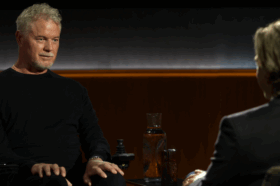
By Brad Adgate, media consultant specializing in digital strategy, market research and competitive intelligence
 To paraphrase Sir Isaac Newton’s third law of motion, every action has a reaction, holds true today in the media. Take for example, the impact of the NFL has on television. In fourth quarter 2019, 47 of the 50 most watched TV programs were NFL games and ratings get better in the postseason. With such ratings success, the NFL could easily open up negotiations to extend the rights fees to television games with their broadcast partners which expires in two years. Under the current agreement, CBS, Fox and NBC pay collectively about $3 billion each year to televise games.
To paraphrase Sir Isaac Newton’s third law of motion, every action has a reaction, holds true today in the media. Take for example, the impact of the NFL has on television. In fourth quarter 2019, 47 of the 50 most watched TV programs were NFL games and ratings get better in the postseason. With such ratings success, the NFL could easily open up negotiations to extend the rights fees to television games with their broadcast partners which expires in two years. Under the current agreement, CBS, Fox and NBC pay collectively about $3 billion each year to televise games.
With deep pocketed digital companies such as Amazon Prime (which already streams Thursday night games) possibly entering the bidding, rights fees could increase by 30% or more, a hefty price increase for broadcasters. In the past, networks had passed along the increase to advertisers, however, NFL games are already, by a wide margin, the most expensive ad buys on television.
There has become a second source of revenue for the networks – retransmission consent fees from MVPD’s and vMVPD’s. This is how it works: Network affiliates and owned & operated stations negotiate fees from Comcast, AT&T, Spectrum, etc. After the negotiations there is reverse compensation in which the stations turn over a percentage of fees to the networks. With rights fees increasing and the importance to retain NFL games, the networks are pressuring affiliates to get the higher rates when negotiating subscriber fees. This has resulted in negotiations reaching an impasse, with TV station blackouts occurring at a record number in 2019.
To be in a better negotiation position, station groups need scalability. The FCC however, have strict ownership caps prohibiting a station group to collectively reach no more than 39% of U.S. TV households. In recent years, station groups have petitioned the FCC to expand ownership caps to no avail. With the chance stations could lose NFL games to digital media, perhaps next time the FCC will relax the ownership caps for stations.
Did Sir Isaac Newton have this in mind? Probably not.







